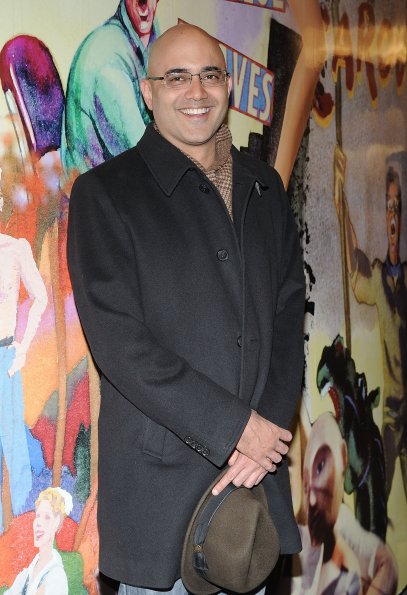
The storyteller on growing up as a Pakistani American in the Midwest and his obsession with finance
Ayad Akhtar was raised in two worlds. His parents, immigrants from the Punjab province of Pakistan, created a home in Milwaukee. As a kid in the Midwest, none of Akhtar’s friends could point to his family’s home country on a map. His grandparents, aunts, uncles and cousins visited from Pakistan, from England, from Kenya—all the places where the family had dispersed—and he grew up hearing from multiple communities that their respective ways of life were best. So he is, he says, “an outsider-insider”—a person who understands being more than one thing.
Even in his work, Akhtar plays many roles: actor, novelist, screenwriter and, most prominently, playwright. In 2013 he won the Pulitzer Prize in Drama for Disgraced. The play tackles that sense of simultaneous otherness and belonging, following Amir Kapoor, a Pakistani-American lawyer whose careful assimilation unravels and then combusts over the course of a fraught dinner party. Through Disgraced, Akhtar puts forth agonizingly uncomfortable thoughts about Islam and what it’s like to grow up to reject—and yet still sympathize with—a culture so violently at odds with where you live.
[time-brightcove not-tgx=”true”]
The rest of his works similarly address cultural tensions. Akhtar starred in a film he wrote, 2005’s The War Within, as a Pakistani who comes to the U.S. to bomb Grand Central Terminal. His plays The Who & the What, in which a Pakistani-American woman horrifies her family by writing a novel about women and Islam, and The Invisible Hand, in which an American investment banker is captured by militants in Pakistan, leap straight into the collision of Islamic and Western perspectives. His novel American Dervish tells a story of a Pakistani-American boy growing up in Milwaukee and discovering Islam, a coming-of-age tale not unlike Akhtar’s, though the writer no longer identifies as “exclusively” Muslim.
Akhtar places little weight on his own fluidity: “I saw it on both sides, and it didn’t strike me as any truer in one version than in the other.” On a personal level, he sees both the horror of American foreign policy and why his government has enforced it. As an artist, he knows there’s a natural category for him as a Pakistani-American writer, and he’s fine with that—as long as he’s not required to adhere. In fact, the theme that most consumes him is global capital flows. He’s a regular reader of the Wall Street Journal.
Junk, Akhtar’s new play at the Lincoln Center Theater, centers around a Michael Milken–esque Wall Street tycoon pioneering the use of junk bonds to fuel hostile takeovers in 1985. It’s a big play, featuring 23 actors and 42 scenes and tackling the roots of what he sees as America’s leading ideology—finance—and the problems therein. It has been characterized as a departure because, to put it simply, the play features no Muslim characters. But Akhtar will be the first to tell you he’s been doing this kind of work all along. Disgraced is about a classic tragic hero undone by hubris, but the lead’s Muslim identity stole focus. The Invisible Hand, received as a thriller about greed, was a comment on the similarities between global finance and third-world militant politics. Further, identity politics—in the world, as much as in his work—is just a distraction. Money is the thing. “Finance has begun to condition and define what we think of as being human,” Akhtar says. “It’s tearing the fabric of collective well-being apart.”
Perhaps philosopher will be this multi-hyphenate’s next act. Speaking about the ills of society, he uses phrases like attention-finance complex and defines them with explanations like, “The advent of the technology that has now instrumentalized and allowed the corporate-financed totalitarian regime to monetize the very process of consciousness,” while mimicking manic swipes across the screen of his iPhone. Technology is destroying our agency. Individualism is rotting our morality. We are ultimately consumers. An almost visible cartoon thought bubble, full of scribbled formulas and ideas, floats above his head. “He’s committed to writing plays that bring onstage the things that trouble our society’s sleep,” Junk director Doug Hughes says. “He’s not going to stay dutifully in one lane, and thank God he isn’t.”